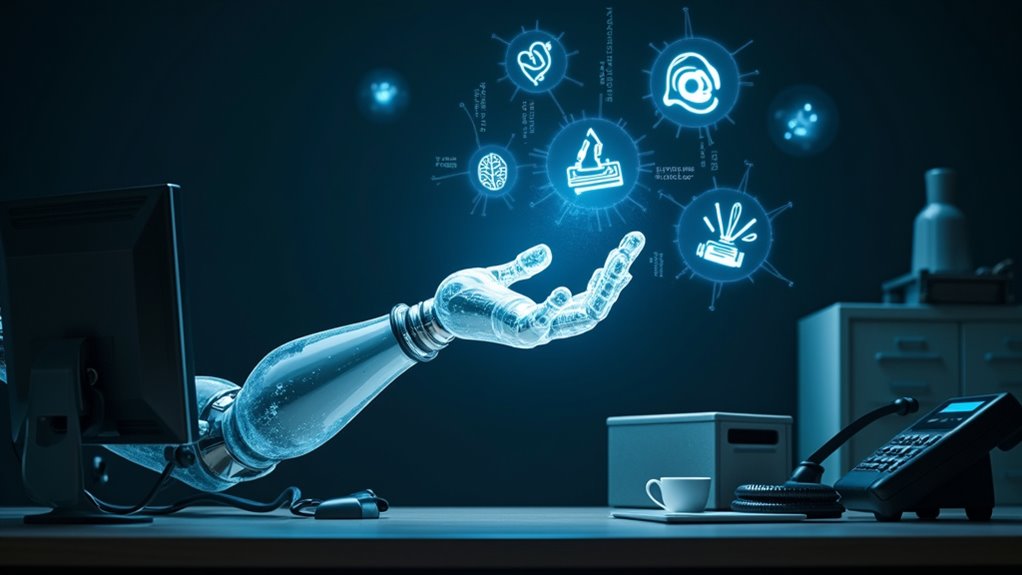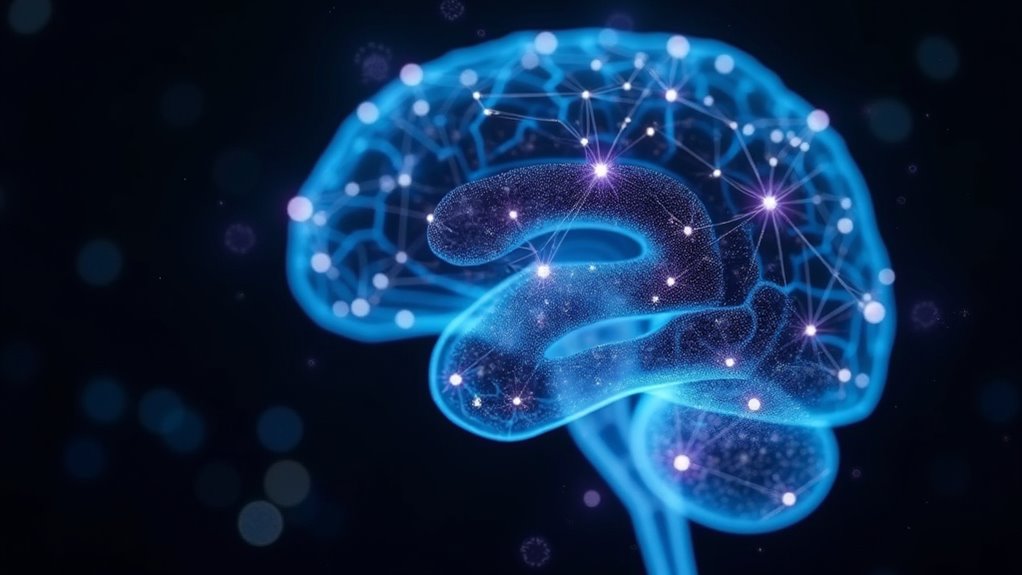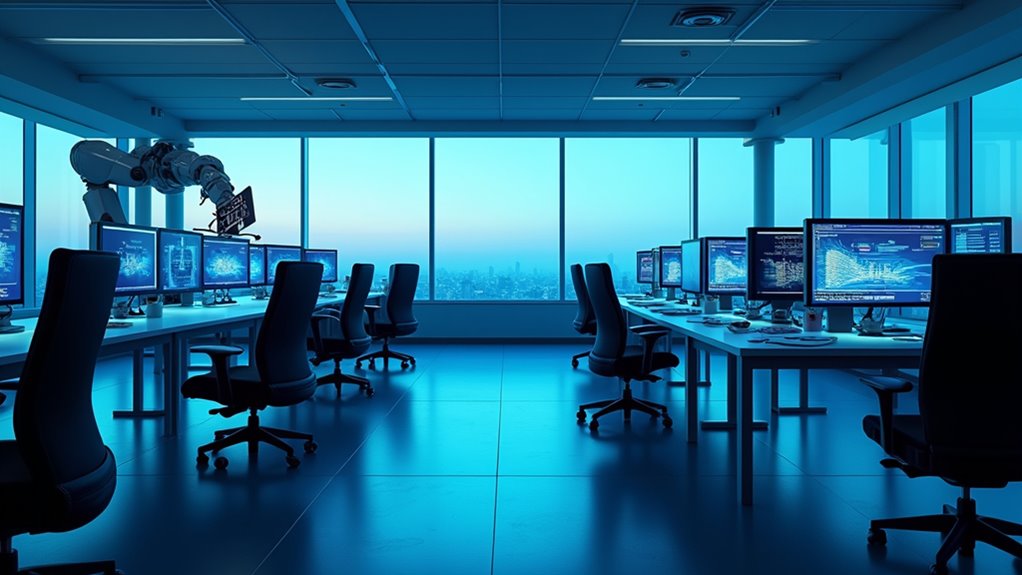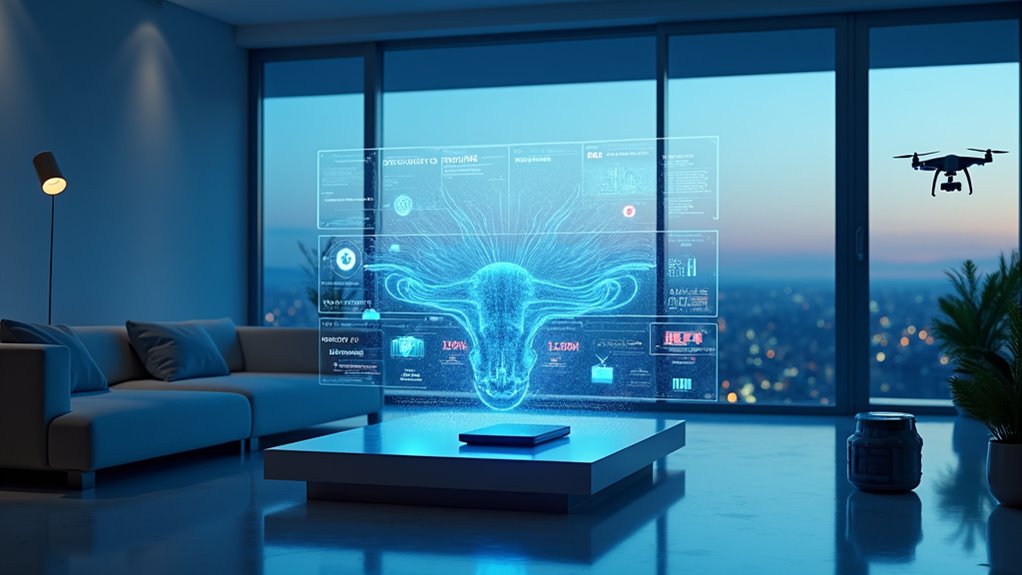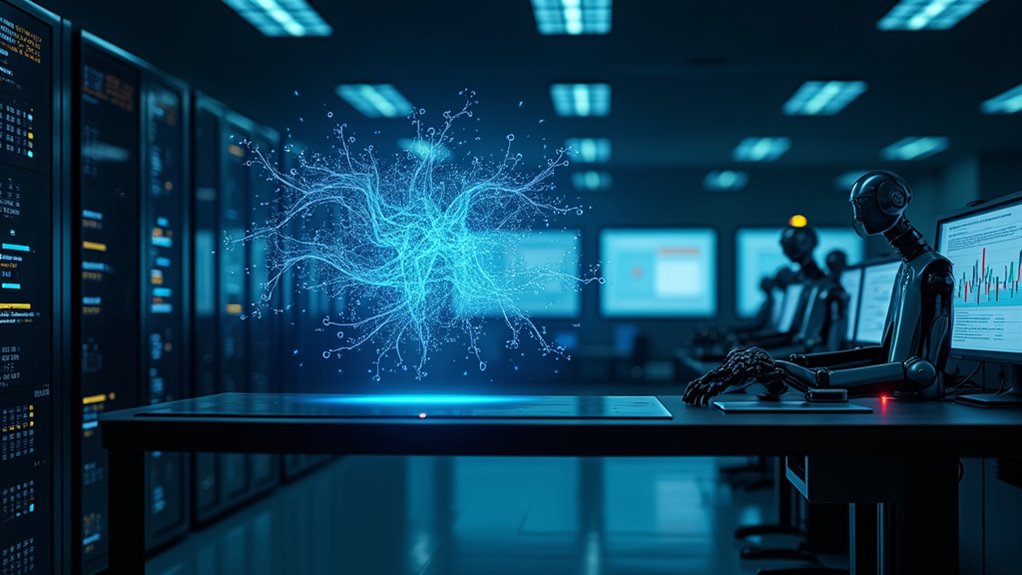How quickly can artificial intelligence upend everything we perceive about work? Well, buckle up – because AI is about to reshape careers faster than anyone expected. The numbers are jaw-dropping: 300 million jobs worldwide could vanish. That’s nearly one in ten jobs, gone. Poof.
Writers, photographers, and software developers are in for a wild ride. The irony isn’t lost here – even the people creating AI might find themselves replaced by it. Manufacturing workers? Two million of them could be watching robots take their spots by 2025. CEOs aren’t sugar-coating it either. One in four of them are already planning job cuts of 5% or more. About 7.5 million data entry jobs are expected to disappear by 2027. Tech leaders are actively investing in workforce development to capitalize on AI opportunities.
But here’s the plot twist: AI isn’t just a job-eating monster. It’s creating new opportunities faster than you can say “machine learning.” History shows us that technological advances typically boost economic growth and employment. By 2030, about 375 million workers will switch careers – not because they want to, but because they have to. That’s like the entire population of the United States changing jobs. Junior lawyers are already seeing significant reductions in entry-level positions at major firms.
The real kicker is how AI is transforming existing jobs. Envision this: by 2030, nearly a third of all work hours in the US could be automated. Knowledge workers, creative types, everyone’s getting a taste of the AI revolution. Some tasks will disappear entirely, while others will morph into something completely different.
The economy isn’t standing still through all this chaos. STEM fields are booming, and creative industries are evolving. Workers need new skills – and fast. It’s not just about learning to work with AI; it’s about staying ahead of it. The job market is shifting like tectonic plates, creating new landscapes of opportunity while swallowing old ones.
In the end, AI isn’t just changing what we do – it’s fundamentally altering how we work. Some sectors will grow, others will shrink, but one thing’s crystal clear: the future of work won’t look anything like its past. Welcome to the new normal, where change is the only constant.
